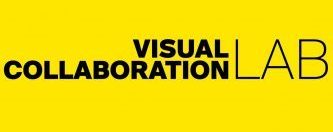Hazbi defends his thesis on monday 4th of June at UNIL.
Title: SUPPORTING THE CHALLENGES OF CROSS-BOUNDARY TEAMWORK THROUGH DESIGN SCIENCE RESEARCH
Abstract: In this doctoral dissertation, I relate six studies I have performed to address three challenges that cross-boundary teams (teams with great knowledge diversity) face: the challenge of coordinating knowledge and contributions, the challenge of forming cooperative attitudes, and the challenge of solving wicked management problems. These studies are inscribed in design science research, which is a paradigm of research aiming to develop prescriptive knowledge through artificial and theoretical contributions for practical problems. The artificial contributions in this research project are (1) the Coopilot App which addresses the coordination challenges by allowing individuals to evaluate how much shared understanding there is between them on the four requirements for coordination (joint objectives, joint commitments, joint resources, and joint risks), and (2) the Team Alignment Map which addresses the cooperation challenges by supporting the emergence of shared leadership through a process of cooperative joint inquiry into the four requirements. Design principles for managing coordination and supporting cooperation (the two first cross-boundary challenges) are drawn from the two artifacts. This manuscript also provides a design theory for managing the third cross-boundary challenge, i.e. wicked problem solving. By comparing the Team Alignment Map with two other similar design science research projects (the Business Model Canvas and the Data Excellence Model), I develop a design theory for visual inquiry tools that help practitioners inquire into specific wicked problems. The theoretical contributions of my research project consist in prescriptions on how team members should interact between them to collaborate effectively and overcome the three cross-boundary challenges. I propose a new conceptualization of cross-boundary teamwork as a process of joint inquiry. The view I propose is different from traditional accounts, in that I stress the importance of language. I highlight the cognitive conditions that should be met through communication to done down the boundaries between cross-boundary team members.
Looking forward to have a new Dr. in the team :-)
